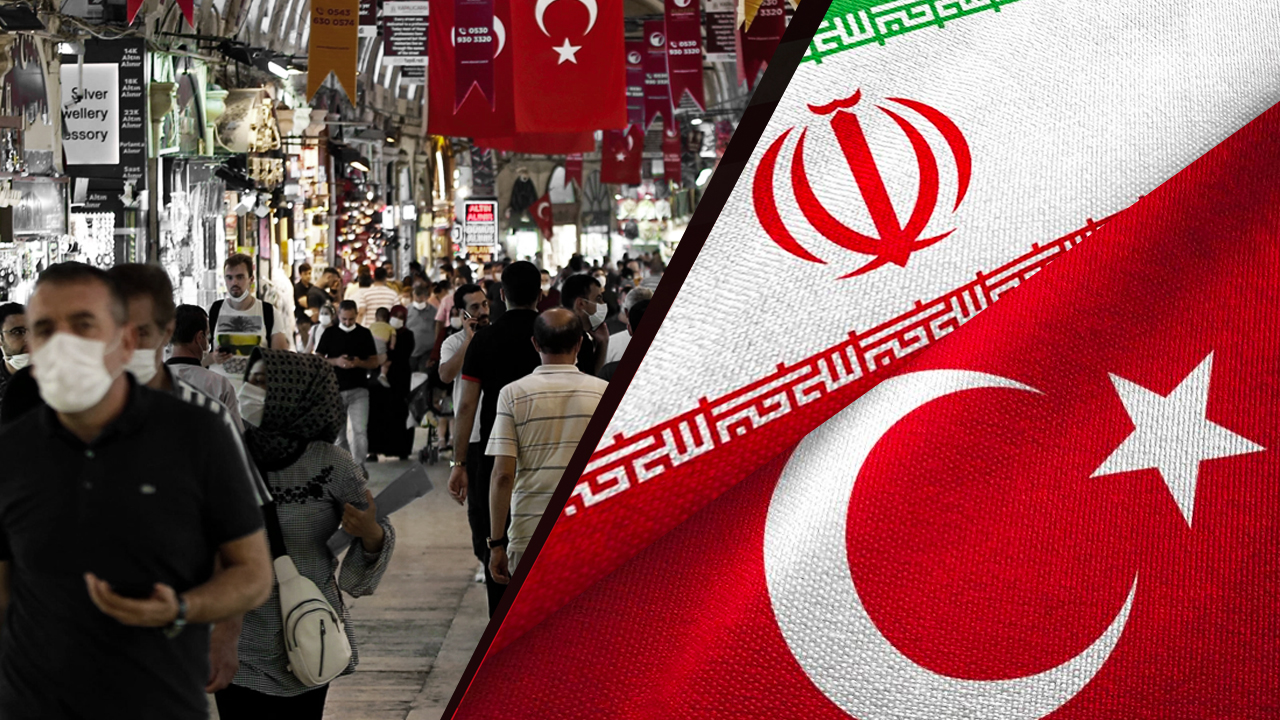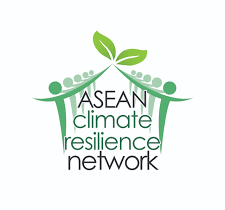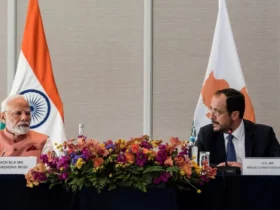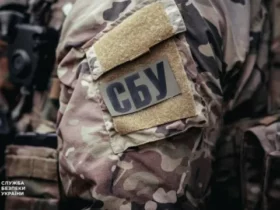The Turkish public agenda has been busy discussing the diplomatic disturbance with Iran over the issue of President Erdogan reading a poem in the Azerbaijani capital Baku.
The poem was alleged to undermine the territorial integrity of Iran, according to Iranian officials.
The other important topic this week was the ongoing pandemic lockdowns and vaccination efforts.
While the Health Ministry has announced a decrease in the number of cases, he also explained misconceptions and prejudices about the vaccination processes.
TURKISH-IRANIAN DIPLOMATIC MISCOMMUNICATION
Erdogan was in the Azerbaijani capital Baku on Thursday in order to participate in a parade marking the Azerbaijani victory over Armenia after the 44-day war over Nagorno-Karabakh.
The parade was celebrated by both the people of Azerbaijan and Turkey. Turkish troops also marched through the boulevards in Baku as a token of their shared victory.
During that visit, Erdogan elaborated the idea of the six-country regional cooperation platform including Russia, Turkey, Azerbaijan, Iran, Georgia, and Armenia during his visit to Azerbaijan where he attended the ceremony of the Victory Parade in the capital Baku upon invitation of Aliyev.
“We could form a six-country regional platform if needed. Mr. Putin also agreed to this. Russia, Turkey, Azerbaijan, Iran, Georgia and, if they accept it, Armenia can also join this platform. We could achieve regional peace through this platform. Of course, this regional peace would bring with it responsibilities for the participant countries. These responsibilities mainly consist of infrastructure, political and diplomatic processes. I said it before, if positive steps are taken, we could open our borders again. We do not mean to close our doors to Armenia. We mean to take the steps of regional peace.” he said.
Another issue was that a poem recited by Erdogan laments how the Aras River has separated Azeri-speaking people in Azerbaijan and Iran and is a symbol of the pan-Turkism doctrine that seeks the unification of all Turks, including those living in Iran.
“They separated the Aras River and filled it with rocks and rods. I will not be separated from you. They have separated us forcibly,” said the poem.
In his rebuke of Erdogan on Twitter, the Iranian Foreign Minister Mohammad Javad Zarif said, “President Erdogan was not informed that what he ill-recited in Baku refers to the forcible separation of areas north of Aras from Iranian motherland. Didn’t he realize that he was undermining the sovereignty of the Republic of Azerbaijan? NO ONE can talk about OUR beloved Azerbaijan.”
The Iranian Foreign Ministry also summoned the Turkish envoy to Tehran and demanded Turkey explain Erdogan’s remarks.
“The Turkish ambassador was told that basing foreign policy on illusions is not wise,” foreign ministry spokesman Saeed Khatibzadeh tweeted, advising Turkish officials to read history.
Omer Celik, spokesperson of Justice and Development Party (AKP), reacted to the statements of some Iranian politicians about President Recep Tayyip Erdogan in his post on Twitter.
“These Iranian politicians have lost enough direction to confuse Iran’s enemies with our President, who has always regarded Iran as a friendly and brotherly country,” Celik said, adding the following:
“Our President has always opposed the injustices against brother Iran. The Iranian politicians who stepped out of line, should be respectful when talking about our President. Those who attack our President are in a position to attack the greatest friend of their country and make their enemies happy. Our President continues to stand by the righteous and remain silent in the face of injustice. We are siding with Azerbaijan against the Armenian occupation. We will continue to protect the rights of brother Iran against injustices.”
Mevlut Cavusoglu, Turkish Minister of Foreign Affairs, held a telephone conversation with Iranian Minister of Foreign Affairs Mohammad Javad Zarif.
Cavusoglu stated that these unfounded and heavy statements made by Iran targeting President Erdogan were unacceptable, alleging that they believed that the poem was about Karabakh and that Iran was not even mentioned in the speech. Emphasizing that they were with Iran in her most difficult times, Cavusoglu said that the disappointment that was being as a result of these statements was heavy.
“In the telephone conversation held between Turkish Minister of Foreign Affairs Mevlut Cavusoglu and Iranian Foreign Minister Zarif, a recently experienced misunderstanding was resolved, and the parties stressed the importance of broadening and strengthening relations between the two countries” – this message was shared from the official Twitter account of the Iran Embassy in Turkey.
Dogu Perincek, chairman of the Vatan Party, also conveyed his opinions on the issue on Twitter.
“In the speech of our President in Baku, there was absolutely no animus against Iran.
They are endeavoring to set Turkey against Iran, since our President and Mr. Aliyev declared a six-party platform with the agreement of Putin.
The Atlantic forces are in a hurry. I have given a commentary on the importance of the six-party platform in terms of Turkey and Iran to the Tehran press. Circles opposed to America and Israel are spreading these statements.
Yet, there seems to be hostility toward Turkey and a campaign against our President especially in the circles who are called ‘reformers’, who have connections with the Atlantic. Israel also supports this campaign.
No Iranian government nor her officials, no Ayatollah Khamenei is behind the campaign against Turkey and our President. We must stand against this unrest altogether.
The United States of America is behind these campaigns. When Turkey, Russia and Iran take Azerbaijan, Georgia and Armenia in, they will defeat the US plans in the Caucasus, West Asia and the Eastern Mediterranean.”
PANDEMIC LOCKDOWNS AND VACCINATION EFFORTS IN TURKEY
Turkey has been facing difficult times, and is currently experiencing severe infection rates and heavy lockdowns. It has decreased the number of new cases which stands at 26.919 as of 13 December 2020.
While the number of deaths stands at 218, the number of severe patients stands at 5973.
Speaking after a meeting with Turkey’s coronavirus task force, Health Minister Fahrettin Koca shared the detailed plan based on which 50 million doses of the vaccine will be administered.
The first batch of 20 million doses will be received in December and January. The second batch of 10 million doses will arrive in February.
Turkey is open to procuring vaccines from other companies after February. The country needs a total of 100 million doses within three months.
Turkey wants to receive the maximum amount of doses as soon as possible to create herd immunity.
Turkish officials are in touch with Pfizer and AstraZeneca for procuring the vaccines.
If studies prove the Russian vaccine to be safe, then it could also be an option.
The Sinovac vaccine on the other hand, has cleared phase-3 trials and has proven safe for commercial usage.
The Chinese vaccine for COVID-19 will be administered in Turkey in only a matter of days.
Public health laboratories and the Turkish Medicines and Medical Devices Agency laboratories will evaluate the vaccines for about a fortnight.
The Health Ministry will grant a permit for early use if the vaccines are found to be in line with the country’s standards.
Turkish Health Ministry is planning to carry out COVID-19 vaccination in four stages.The vaccine will be administered in two doses, 14 to 21 days apart, free-of-cost for all Turkish citizens. Being vaccinated will not be mandatory for now, and Turkey is aiming to convince its citizens into making mass vaccination possible.
The Sinovac vaccine will be administered first and foremost to health care workers starting from the end of December. Pregnant women, citizens under the age of 18, and those who have recovered from the virus within the past six months will be exempted.
Another good news would be that the phase two trials of the Turkish-made COVID-19 vaccine will begin on December 25th, Health Minister Fahrettin Koca announced on late Saturday.
“In parallel with the world, 16 different vaccine studies are carried out in our country. One of them has completed the pre-clinical period and started human trials. Phase two study will begin on December 25,” he told the lawmakers during the 2021 budget debate in parliament.
The Health Ministry said that the vaccine’s production for phase two started on Wednesday.
Apart from our vaccination studies, we are also to access safe and efficient vaccines made elsewhere in the world, he said.
“I hope we will make our domestic COVID-19 vaccine by April,” he said.
The Turkish-made ERUCOV-VAC vaccine is being developed at the Erciyes University in the Kayseri Province with support from Turkey’s Institutes of Health Administration (TUSEB).
“They will be able to give us 25 million doses by the end of 2021. We are trying to pull this forward. We want it before the summer. There is a fire going on. We need to extinguish it as soon as possible,” Fahrettin Koca said to the media.
The Health Ministry also said Turkey would not pay for the Sinovac vaccine if it proved not effective enough.
Earlier on Wednesday, Turkish media reported that the Health Ministry had ruled out the Russian vaccine, saying it had not yet met conditions of “good laboratory practice”.
The Health Ministry did not specify which Russian vaccine he was referring to, but Turkey has spoken of conducting Phase III trials for “Sputnik-V”, the world’s first registered coronavirus vaccine.
“If tests are successful, there is no problem in procuring the vaccine produced in Russia,” as the Health Minister Fahrettin Koca told during a news conference.
Another hard-hit branch of the government was the Ministry of Education. Due to the lockdowns, Turkey has been keeping the schools closed since March 2020.
Turkey has resumed its distance learning education system as of November 20th, until January 4th 2021.
Turkey is now hoping to resume in-person education as soon as conditions surrounding the coronavirus pandemic improve, the country’s education minister said Sunday.
“We are waiting for the conditions to mature to start face-to-face education as soon as possible,” Minister of Education Ziya Selcuk told lawmakers during the 2021 budget debate in parliament.
“We are increasing our investment budget for areas that we attach special importance to such as the transition to single education and pre-school education, distance education, earthquake reinforcement activities in schools and the workshop infrastructure of vocational high schools by 94% to 11.3 billion liras,” he said.

















Leave a Reply